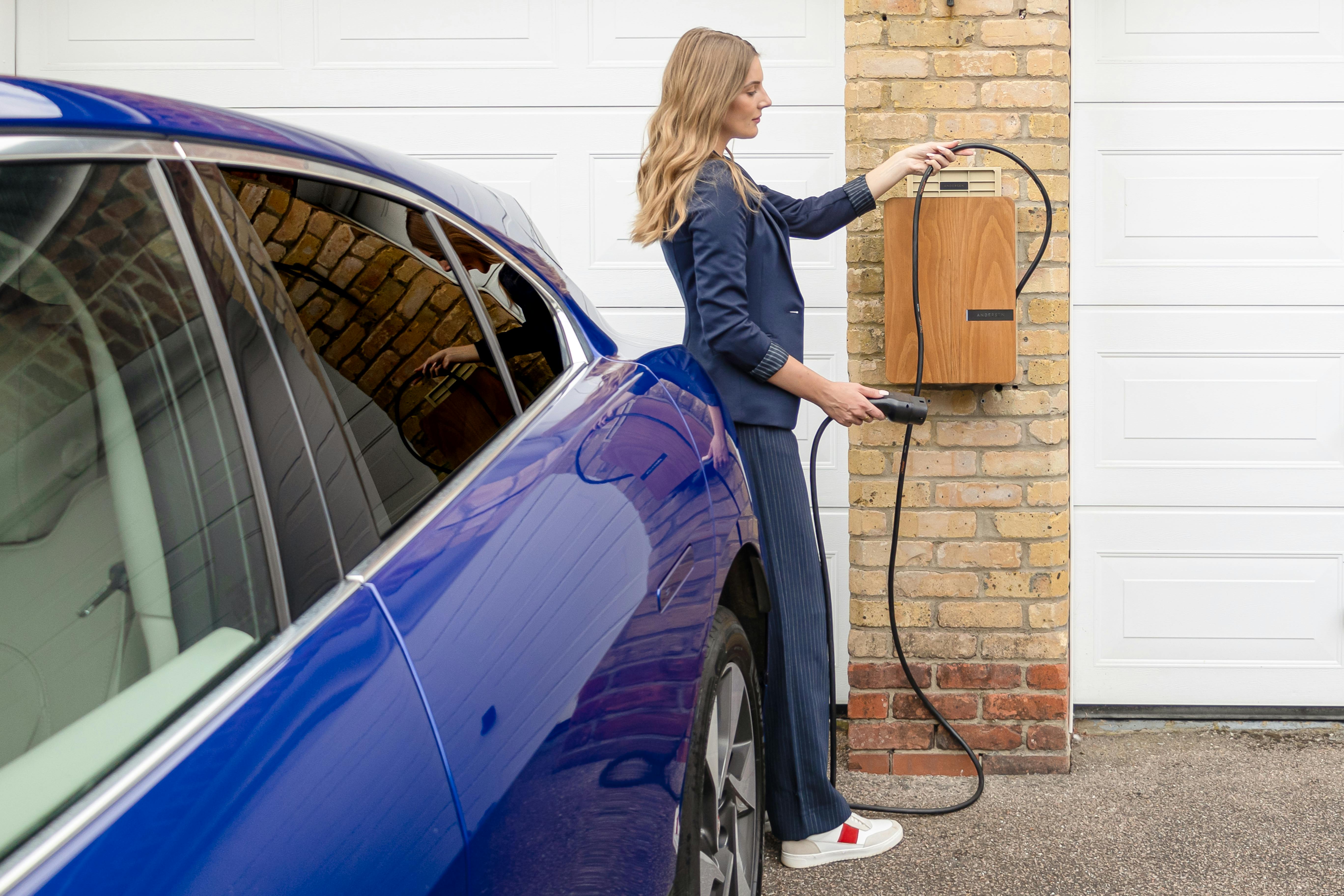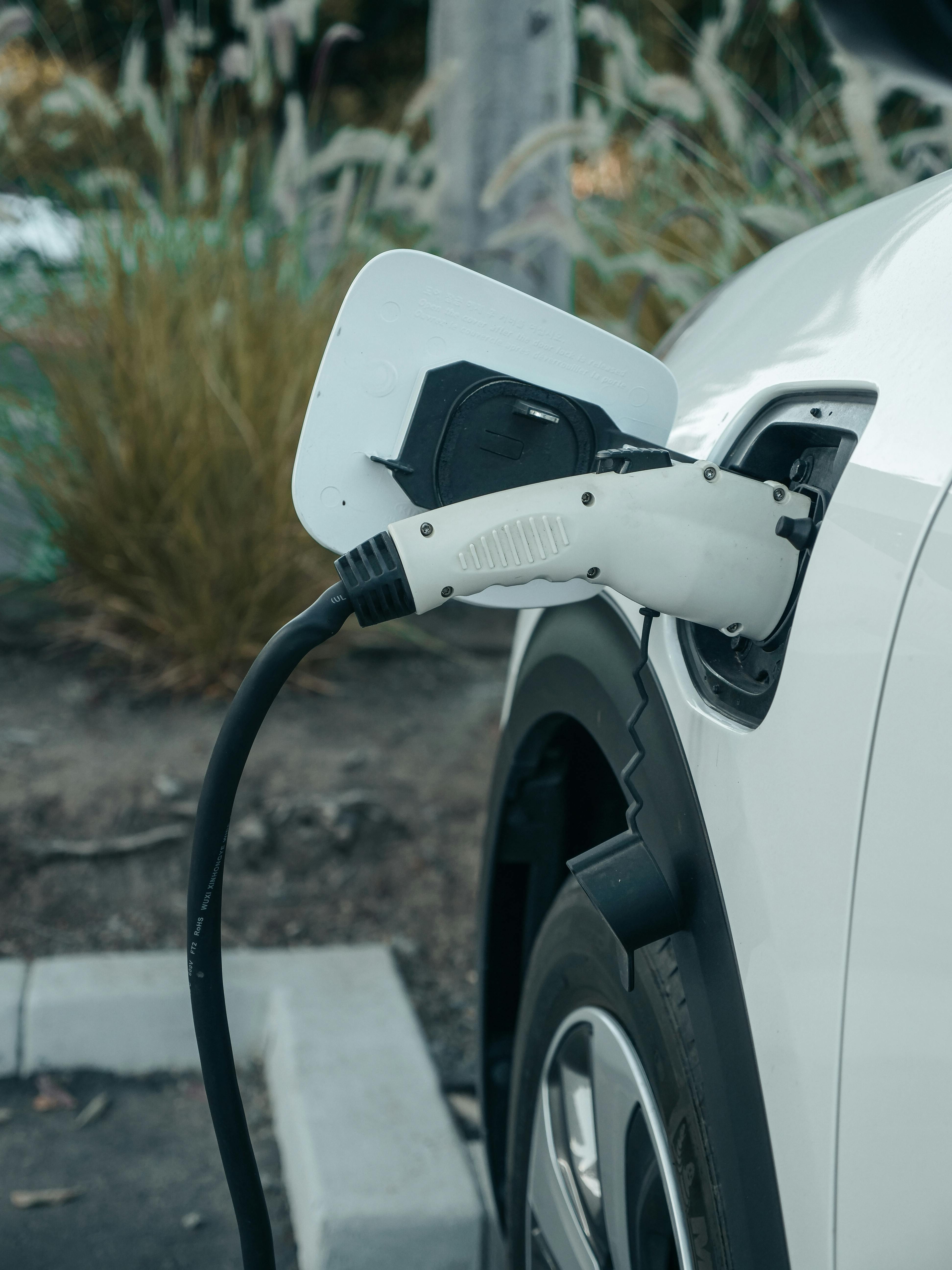Everything You Need to Know Before Installing an EV Charger at Home

Electric vehicles (EVs) have quickly become a popular choice for many drivers seeking environmentally friendly and cost-effective transportation. And there's no denying that EVs are slowly but surely growing in popularity among UK drivers, with a predicted 80% of new cars and 70% of new vans sold to be zero-emission by 2030—increasing to 100% by 2035. However, they do have their own quirks.
It’s been found that in colder climates, charging speeds may be slower, making winter a tougher time for EV drivers in a rush.
And with our research determining that there are approximately 18 (17.8) EV’s for every public charger across the UK, many EV owners may start to consider installing their own charging station at home, not only for convenience but also for faster charging throughout winter.
In fact, our new survey of UK drivers found that over a quarter (28%) would like to install an at-home EV charger. However, 57% feel it’s too expensive, and a further 45% say it is complicated.
To help tackle these ideas, and assist any owners looking at EV charger installation, our experts here at Group 1 Automotive have outlined some key information you may need to know before you install an EV charger at home.

EV Charger Installation Questions, Answered
Can I install an EV charger in my home?
Firstly, you may be wondering if you’re allowed to do this in your home. If you own your house, and have private parking, you are able to install an EV charger. In other circumstances such as renting, you’ll need to contact your landlord to discuss.
As well as this, no ordinary electrician can install an EV charger - they should have a charge point installation (2921) qualification and be registered on the Competent Person Scheme. However, many EV charger providers offer installation at the time of purchase, so weigh up your options first.
Unless you’re qualified to do so, you should never attempt to install an EV charger yourself as this can be very dangerous when working with high voltage currents which can harm your home, and yourself. This will also void the warranty of your charger, meaning you won’t be able to claim anything back if things go wrong.
Is an at home charging station worth it?
As of September 2024, there are over 70,000 available public EV chargers in the UK. And whilst some cities may be luckier than others with the number of chargers, there are over 1.25 million EV’s on the road - working out to approximately 18 (17.8) EV’s per public charger.
In fact, our previous research into the UK’s greenest cities also found that most (45%) EV drivers charge their vehicles for an average of 45 minutes every time they use a public charging station. But, with the number of EV drivers only expected to grow, cities must improve their facilities to deal with the increasing demand.
Due to this, an at-home EV charger is the most convenient way to charge your vehicle, as there is no need to wait around a public charging point for it to become available.
Which EV charger should I purchase?
When it comes to deciding which EV charger you should purchase, there are a few different options to consider based on your requirements, such as the charging rate. Be sure to find out the charging rate of your EV versus the maximum rate of the charging point before purchasing.
Although almost all UK homes have single-phase power, this will only allow for a maximum charging rate of 7kW. However, you can upgrade to three-phase power and unlock a faster rate for an additional cost.
Which provider should I use?
Whilst there are a bunch of EV charging providers across the UK, it’s important that you choose one that is right for you, so take into consideration:
-
How much each provider costs
-
The charging rate for each provider
-
Compatibility with your EV
-
Installation costs (or if this is included in the overall cost)
-
Are they compliant and reliable?
How long does it take to install an EV charger?
Depending on the provider, this can vary, but it typically won’t take longer than 2-3 hours. This time can increase if you require more than one EV charger, as well as the type of charger that you are installing.
Where is the best location for an EV charger at home?
When deciding where in your home to install an EV charger, it goes without saying that you should keep this outside - after all, we don't park our cars in the living room!
EV chargers can be used safely outdoors, even in rain or snow, so any available outdoor space near an electrical panel and your private parking spot will be suitable. However, many EV owners prefer to keep these in their garage for extra peace of mind.
Learn More About Electric Vehicles
Instead of a traditional combustion engine, an all-electric car is powered solely by an electric motor, which is battery-powered. Some of the benefits include:
-
Electricity is significantly cheaper than petrol and diesel
-
Electric motors produce zero driving CO2 emissions
-
With less weight, electric cars are more energy-efficient than traditional cars
-
No fuel duty is incurred on electricity used for recharging
-
Zero emission vehicles valued under £40,000 are exempt from Vehicle Excise Duty (VED)
-
Lower VAT (5%) is applied to the electricity used in recharging
To learn more about EV’s, and to see if they are the right choice for you, come and visit us at your nearest dealership.

Methodology
*based on 70,000 public charging stations and 1.25 million EV’s in the UK
